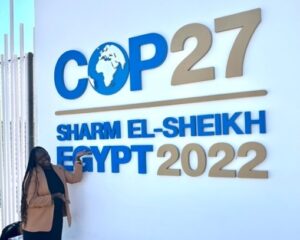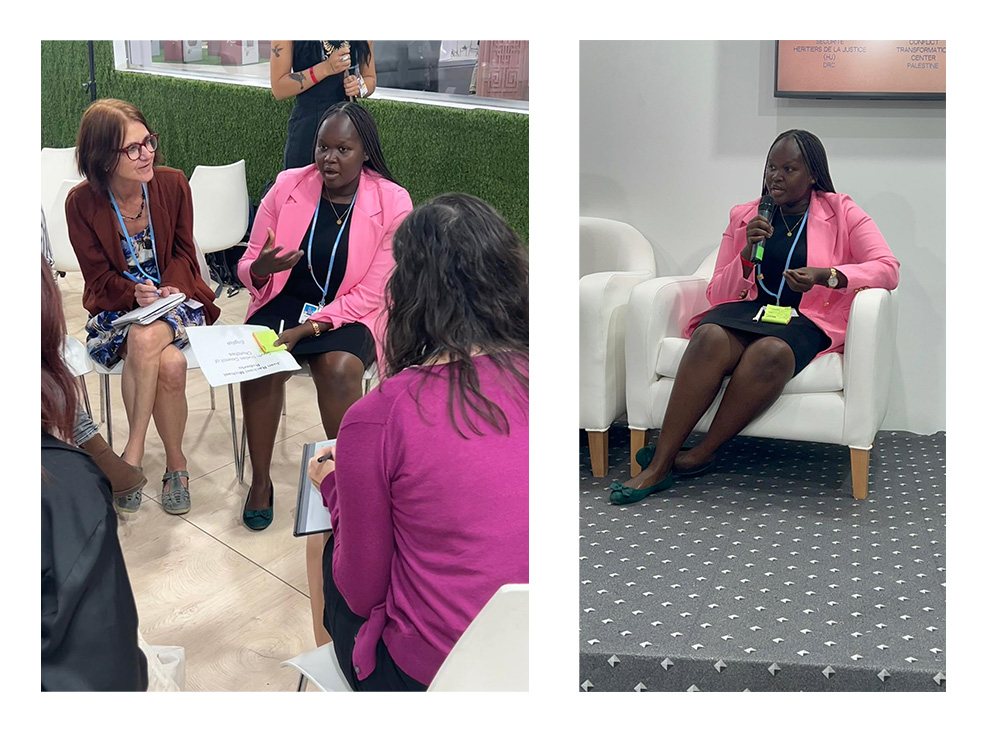The first of many beginnings

As COP27 was my first COP, I had so much to learn, and I did – from the diverse cultures, making new friends and learning the latest ideas. For people all over the globe to convene and find solutions to issues is truly fascinating.
Here at COP27, the common denominator for all, of course, is the climate change crisis that has robbed us of our present and, if you ask me, our future, if we do not act immediately.
Where I come from in South Sudan, rains have become unreliable in places where they were sufficient, yields have reduced, floods have taken away our livelihoods and have washed away the tombs of our ancestors. This reflects how issues related to climate change are a matter of life and death. We carry this trauma everyday of our lives with little or no response from the people with whom we entrusted authority and power to protect us.
On one of the days during COP27, I had an opportunity to participate in the KAIROS Blanket Exercise, an interactive educational programme that teaches the history of colonisation in Canada. The goal of this exercise is to build understanding about shared history as Indigenous and non-Indigenous peoples in Canada by walking through pre-contact, treaty-making, colonisation, and resistance. This specific activity was very emotional for me. I felt the hurdles and pain of those who came before me – their losses, not only of their land and water, but their identity. As a young African woman, this spoke to me. I was so glad that the Exercise concluded with examples on how the Indigenous people are celebrating their culture and appreciating their existence.
November 16th was the day for the panel discussion at the Canadian Pavilion on climate justice, peace and conflict and gender equality. For the first time, I shared a stage with strong women who share a collective vision for sustainable peace in our countries and the world. Listening to these other women leaders from the Global South, I realised that we share the same sentiments of what is needed to respond to the climate change crisis. We all mentioned that climate change is affecting women and girls disproportionately as they are more vulnerable to the impacts of climate change. We called upon the international community, our governments, and all members of civil society to join hands with us in prioritising climate change and all issues related to it. I was so glad that through this panel, I “emptied my worries” and informed the world about the status of climate change response in my own country.

My experience at COP27 was a beautiful one. I reconnected with nature as we resided just a few meters from the sea. As I walked along the beach, I reflected on the words of a young woman during an event at the SDG (Sustainable Development Goals) Pavilion at COP 27. She lamented that there are more refugees in the world today as a result of climate change than war. This is true and sad for me as a South Sudanese because, as we are trying to rebuild what was destroyed during decades of violent conflict, impacts of climate change are further breaking us. However, the conversations I was a part of also supported me and restored hope in my role as an advocate for climate change response in my country, South Sudan, and the world.
By Juan Rachael Michael Roberto, Advocacy Coordinator for the South Sudan Council of Churches.








